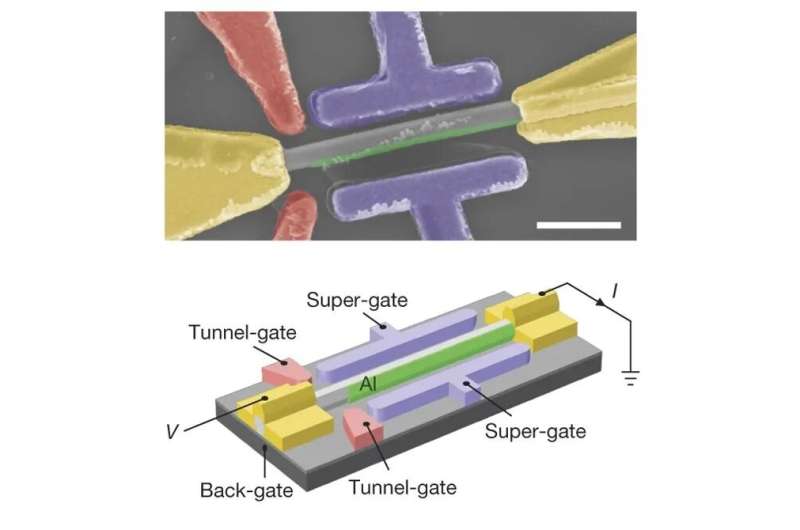March 11, 2021 report
Setback for Majorana fermion as Microsoft team retracts research paper

A team of researchers at a Microsoft laboratory in the Netherlands, who published a 2018 paper in the journal Nature, has now retracted that paper, citing a lack of evidence to support their previous conclusions. The study involved trying to prove the existence of the fermion—a theorized particle that could possibly be both matter and antimatter. The retraction came after Sergey Frolov, a researcher at the University of Pittsburgh in Pennsylvania, found that another quantum phenomenon could mimic the results found by the original research team. After a re-analysis of their work, the researchers agreed with Frolov and contacted Nature to ask for a retraction.
Physicists have theorized that the Majorana fermion, if it does exist, could be used to build a true quantum computer because it would be topological, which means that groups of them would be able to remember their interaction history—this was why Microsoft became interested in them and how they might be used. Finding proof of their existence, unfortunately, has proven to be very challenging. Several groups have tried and failed, but technology companies like Microsoft are not waiting for proof of their existence—they are more interested in finding out if they could be used to build a quantum computer.
Back in 2012, a physicist at Delft University, Leo Kouwenhoven, found small hints that suggested such a computer might be possible. In 2016, Microsoft hired him and several others to work on a project geared toward the development of a Majorana fermion-based quantum computer. Their approach involved creating Majorana fermions inside of a type of nanowire. The trick was in detecting them—no one knows how to directly detect Majorana fermions, so the researchers used a smoking-gun approach—measuring sudden peaks in conductance.
It was the smoking-gun effect that ultimately led to trouble for the team. Frolov found that Andreev states in the system could just as easily be what the researchers were observing, not evidence of Majorana fermions.
The original researchers have apologized for the mistakes that were made in their work, noting that there was "insufficient scientific rigor." But they also suggest that such mistakes should not detract from the progress to date to prove the existence of Majorana fermions or dash hopes of using them to create a quantum computer.
More information: Hao Zhang et al. RETRACTED ARTICLE: Quantized Majorana conductance, Nature (2018). DOI: 10.1038/nature26142
P. Yu et al. Non-Majorana states yield nearly quantized conductance in proximatized nanowires, Nature Physics (2021). DOI: 10.1038/s41567-020-01107-w
Journal information: Nature , Nature Physics
© 2021 Science X Network





















